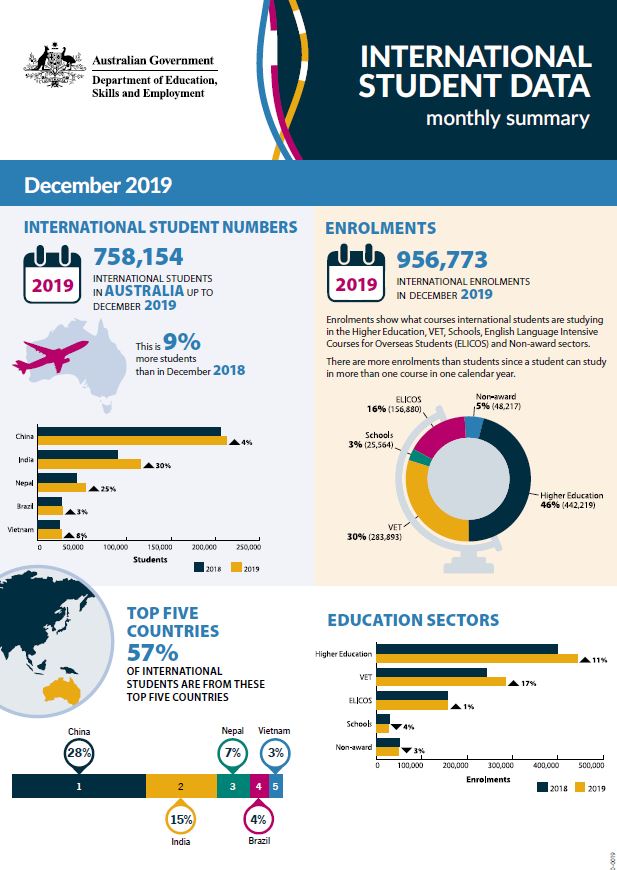The Novel coronavirus (now known as COVID-19) has continued to play havoc with many Australian tertiary education providers, arriving just prior to the commencement of the Australian academic year.
Australia is expected to extend its China travel ban for another week amid ongoing fears over the spread of the coronavirus, locking out hundreds of thousands of students and tourists from entering the country. Here’s an update of the latest news:
- Some senior high school students from China will be allowed to travel to Australia under a strict exemption announced by the Federal Government.
- Some Chinese students appear to have gotten around the ban by travelling through Thailand, reports Tim Dodd in The Australian.
- The Australian Government continues to balance “health security” with “wealth security”, making week-to-week decisions on its current travel ban on people who have been in China, with the ban likely to be lifted progressively.
- As of today, the Australian Government chief medical officer Professor Brendan Murphy’s has provided reassurances that there is no need to wear masks in public, as “there has been no community transmission of the virus in Australia, despite 22 confirmed cases.”
The Australian Government Department of Education, Skills and Employment (DESE) regularly updates its information on the virus through this link.
Australia is exceptionally “exposed” – economically, demographically and politically – to the impacts of the virus, which has devastated the overseas student cohort at many universities and VET providers – with up to 100,000 Chinese students affected.
Politically, the relationships with China – and the Chinese body politic itself – may alter significantly. "After the coronavirus, can Chinese politics ever be the same?” asks William H. Overholt, with COVID-19 adding “to the likelihood of dramatic change in the world’s largest nation…. The shock of the end of the [Chinese] bull market mentality was coming. COVID-19 will bring it forward.”
Tonight (Monday, 24 February), ABC TV’s Q&A focusses on the virus, including Wang Xining, Minister and Deputy Head of Mission of Chinese Embassy in Canberra.
Attempts by many universities to replace on-campus study with online learning for excluded Chinese students have been fruitless. As the Australian Government reports: The China Service Center for Scholarly Exchange (CSCSE) is responsible for the recognition of qualifications in China. It does not currently recognise qualifications earned via cross border distance learning. ‘Online degrees’ therefore, are not recognised.”
Data released by the Australian Government illustrates just how significant overseas students – and their tuition payments – are to Australian post-secondary institutions: in 2019, there were a staggering 956,773 overseas student enrolments (although some students may have enrolled in more than one course of study) in the Higher Education, VET, Schools, English Language Intensive Courses for Overseas Students (ELICOS) and Non-award sectors. Of those, 30% (283,893) were VET enrolments (see graphic below), with China the top student source, with 28% of students. (India was next, with 15%, then Nepal (7% ), Brazil (4%) and Vietnam (3%).
According to ITECA, the coronavirus has now affected a third of private for-profit international tertiary education students
“Australia’s not-for-profit adult and community education providers are mostly insulated from the short-term ban on Chinese international students, because our providers primarily focus on domestic students and priorities. But what affects the VET sector’s viability and vigour will affect all of us,” said Dr Don Perlgut, CCA’s CEO.






